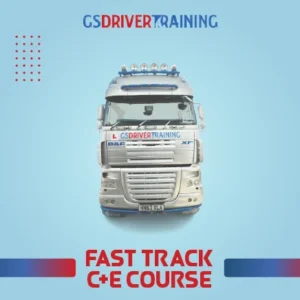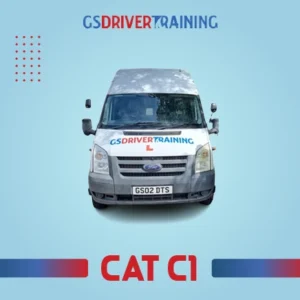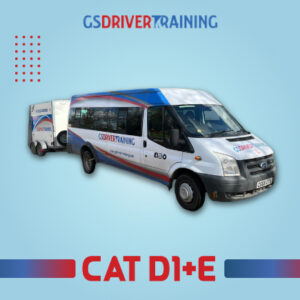1. Research HGV Licence Categories
Determine which category of HGV licence aligns with your career goals. Common categories include Category C (Rigid) and C+E (Articulated).
2. Find Reputable HGV Training Providers in Kent
Begin your search for reputable HGV training providers in Kent. Look for schools with experienced instructors and positive reviews from previous students.
3. Enrol in an HGV Training Course
Contact your chosen training provider and enrol in an HGV training course that suits your licence category. Ensure the course covers both theory and practical aspects of driving.
4. Prepare for the Theory Test
Use official DVSA resources and practice tests to prepare for the theory test, which assesses your knowledge of road safety, vehicle operation, and other essential topics.
5. Attend Practical Training Sessions
Attend practical training sessions provided by your training school. These sessions will teach vehicle handling, safety procedures, and on-road driving skills.
6. Vehicle Familiarization
Familiarize yourself with the HGV you’ll be using during training. Understanding the vehicle’s controls and features is crucial for your practical test.
7. Utilize Mock Tests and Practice Sessions
Take advantage of mock tests and practice sessions offered by your training provider to assess your readiness for the practical test.
8. Schedule Your Practical Test
Schedule your practical test through the official DVSA website when you feel confident and well-prepared. Arrive early on test day with all required documents.
9. Obtain Your HGV Licence
Upon successfully passing the practical test, you’ll obtain your HGV licence, allowing you to drive heavy goods vehicles legally in Kent and beyond.
10. Explore Job Opportunities
Begin your job search for HGV driver positions in Kent. Many logistics and transportation companies seek qualified drivers, and having your HGV licence opens up various career opportunities.
11. Consider Further Specialization
Depending on your interests and career goals, consider further specialisation such as ADR (Hazardous Goods) or HIAB (Lorry-Mounted Crane) training to enhance your skill set.
By following this guide, you can successfully unlock your professional driving career with HGV training in Kent. Good luck with your HGV training journey!
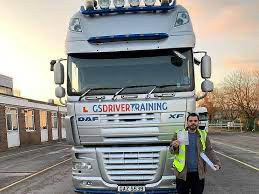
C1 Training in Kent
If you’re interested in C1 (Medium Goods Vehicle) training in Kent, here’s a guide to help you get started:
1. Understand C1 Licence
The C1 licence allows you to drive medium-sized goods vehicles with a weight between 3,500kg and 7,500kg. This includes vehicles like ambulances, small box vans, and horseboxes.
2. Research Local Training Providers
Start by researching local driving schools or training providers in Kent that offer C1 training. Look for those with experience in providing C1 driver training.
3. Check Eligibility Requirements
Verify the eligibility requirements for C1 training . In most cases, you’ll need a regular car driving licence (Category B) before starting C1 training.
4. Enrol in a C1 Training Course
Contact your chosen training provider and enrol in a C1 training course . Ensure the course covers both theory and practical training.
5. Theory Test Preparation
Prepare for the theory test, which covers essential knowledge about operating medium goods vehicles and road safety. Use official DVSA resources and practice tests to prepare effectively.
6. Practical Training
Attend the practical training sessions. These sessions will teach you how to operate C1 vehicles, including vehicle handling, safety procedures, and on-road skills.
7. Vehicle Familiarization
Spend time getting familiar with the C1 vehicle you’ll use during your training. Understanding the vehicle’s controls and features is essential.
8. Mock Tests and Practice
Utilize mock tests and practice sessions offered by your training provider to assess your progress and readiness for the practical test.
9. Practical Test Booking
Book your practical test through the official DVSA website when you feel prepared. On test day, arrive early and ensure you have all required documents.
10. Obtain Your C1 Licence
If you pass the practical test, you’ll obtain your C1 driving licence , allowing you to drive medium-goods vehicles legally.
11. Job Opportunities
With a C1 licence, you can explore job opportunities that involve driving medium-sized goods vehicles. These may include roles in delivery, transportation, or specialized services.
12. Continuing Education
Consider further training or certifications to enhance your skills and job prospects.
Following this guide, you can complete C1 training in Kent and gain the necessary skills to drive medium goods vehicles. It’s a valuable qualification for those seeking opportunities in the transportation and logistics industry.
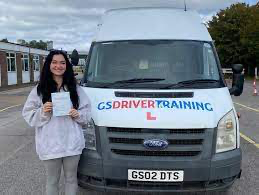
CPC Training in Kent
If you’re looking for CPC (Certificate of Professional Competence) training in Kent, here’s a guide to help you get started:
1. Understand the Importance of CPC
Driver CPC training is a legal requirement for professional drivers. It aims to enhance safety, professionalism, and knowledge in the road transport industry.
2. Research Local Training Providers
Start by researching local training providers in Kent that offer CPC training for HGV and PCV drivers. Look for providers with a good reputation and experienced instructors.
3. Choose the Right Type of CPC Training
Determine whether you need Initial Driver CPC (for new drivers) or Periodic Driver CPC (for existing drivers). The Initial CPC is necessary for those obtaining their first vocational driving licence.
4. Enrol in a CPC Training Course
Contact your chosen training provider and enrol in a CPC training course. Ensure the course covers the required modules and is approved by the relevant authorities.
5. Course Content
CPC training includes modules on road safety, vehicle operation, health and safety, and professional driving skills. Make sure the course covers all necessary topics.
6. Check Course Schedule
Confirm the schedule of the CPC training course . Periodic Driver CPC training is an ongoing requirement, so plan accordingly to complete the necessary hours within the five-year cycle.
7. Practical Training
Some CPC courses may include practical elements. Ensure you understand the balance between theory and practical training in the chosen course.
8. Mock Tests and Practice
Take advantage of any mock tests or practice sessions offered by the training provider. This can help you assess your readiness for the CPC assessments.
9. Attend the Training
Attend all the scheduled training sessions. Active participation is crucial for gaining the knowledge and skills required for CPC.
10. Pass the Assessments
The assessments were successfully passed at the end of the CPC training . This may include written and practical assessments, depending on the type of driver CPC training .
11. Maintain Periodic CPC
If you’re completing Periodic Driver CPC, ensure you continue with regular training sessions to maintain your professional competence. Keep track of the hours completed.
12. Explore Job Opportunities
Having a valid CPC qualification enhances your employability as a professional driver. Explore job opportunities in the transportation and logistics industry in Kent.
By following this guide, you can complete CPC training in Kent and meet the legal requirements for professional drivers. CPC is a valuable qualification that ensures safety and professionalism in the road transport sector.
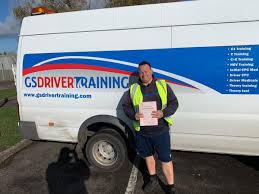
D1 Training Kent
If you’re interested in D1 (Minibus) training in Kent, here’s a guide to help you get started:
1. Understand D1 Licence
The D1 licence allows you to drive minibuses with more than eight passenger seats, up to a maximum of 16. If you’re looking to drive larger vehicles, this licence is essential.
2. Research Local Training Providers
Begin by researching local driving schools or training providers in Kent that offer D1 training. Look for reputable providers with experienced instructors.
3. Check Eligibility Requirements
Verify the eligibility requirements for D1 training. In most cases, you’ll need a regular car driving licence (Category B) before starting D1 training.
4. Enrol in a D1 Training Course
Contact your chosen training provider and enrol in a D1 training course . Ensure the course covers the theory and practical training required for D1 licence acquisition.
5. Theory Test Preparation
– Prepare for the theory test, which covers essential knowledge about operating minibuses and road safety. Use official DVSA resources and practice tests to prepare effectively.
6. Practical Training
Attend the practical training sessions provided by your training school. These sessions will teach vehicle handling, safety procedures, and on-road driving skills specific to minibuses.
7. Vehicle Familiarization
Spend time getting familiar with the D1 minibus you’ll use during your training. Understanding the vehicle’s controls and features is crucial.
8. Mock Tests and Practice
– Utilize mock tests and practice sessions offered by your training provider to assess your readiness for the practical test.
9. Practical Test Booking
Book your practical test through the official DVSA website when you feel confident and well-prepared. On test day, arrive early and ensure you have all required documents.
10. Obtain Your D1 Licence
If you pass the practical test, you’ll obtain your D1 driving licence , allowing you to drive minibuses with more than eight passenger seats legally.
11. Explore Job Opportunities
With a D1 licence, you can explore job opportunities that involve driving minibuses, such as working with schools, community organizations, or private transport services.
12. Consider Further Specialization
Depending on your interests and career goals, consider further training or certifications to enhance your skills and job prospects.
Following this guide, you can complete D1 training in Kent and gain the necessary skills to drive minibuses. It’s a valuable qualification for those seeking opportunities in passenger transportation and related industries.
FAQ (Frequently Asked Questions)
1. What Are HGV Training Courses?
HGV driving courses are programs designed to provide individuals with the knowledge and skills to become professional Heavy Goods Vehicles (HGV) drivers.
2. How Can I Become an HGV Driver?
To become an HGV driver, you must undergo professional training, including theoretical and practical components. Enrolling in HGV training courses is the first step.
3. What Does Professional Driver Training Include?
Professional driver training encompasses theoretical knowledge, such as road safety and regulations, and practical skills, like vehicle operation and on-road driving.
4. Are There Different Types of Courses for Professional Drivers?
Yes, various courses are catering to different categories of drivers. Examples include HGV driver training , LGV (Large Goods Vehicle) lorry driver training, and commercial driving school courses.
5. How Much Does HGV Training Cost?
HGV training costs can vary depending on the type of course and the training provider. It’s advisable to contact training schools for specific pricing information.
6. Are HGV Drivers in Demand?
Yes, there is a demand for qualified HGV drivers. Many industries rely on transporting goods, creating job opportunities for skilled and trained professionals.
7. Can I Take HGV Training Courses Part-Time?
Some training providers offer flexible schedules, including part-time courses, to accommodate individuals with other commitments who wish to pursue HGV training.
8. What is the Role of a Bus Driver?
A bus driver is a professional responsible for transporting passengers safely. Bus driver training is essential for mastering the skills needed for this role.
9. How Do LGV Lorry Driver Training Courses Differ from HGV Training?
LGV lorry driver training is specific to large goods vehicles. While HGV and LGV are often used interchangeably, the training focuses on different categories of goods vehicles.
10. Are There Specialized Courses for Heavy Goods Vehicle Drivers?
There are specialized courses for HGV drivers, such as those focusing on hazardous materials or specific industries. These courses enhance skills and job opportunities.
11. What Qualifications Do I Need to Attend Commercial Driving School?
Requirements for attending a commercial driving school may vary, but generally, you need a valid driver’s licence and, for certain courses, specific endorsements.
Also Read:
Ambulance Driver Training
HGV Driver Training Near Me
Category HGV Driver Training
Category Fast Track Training
Category C1 Driver Training
Category HGV and Lgv Certification
Products
Category CPC Driver Training
Category Driving Jobs
Category Lorry Driver Trainings
Category Driving Licence




